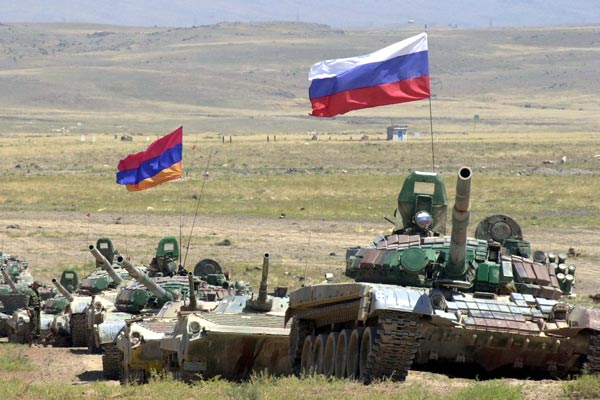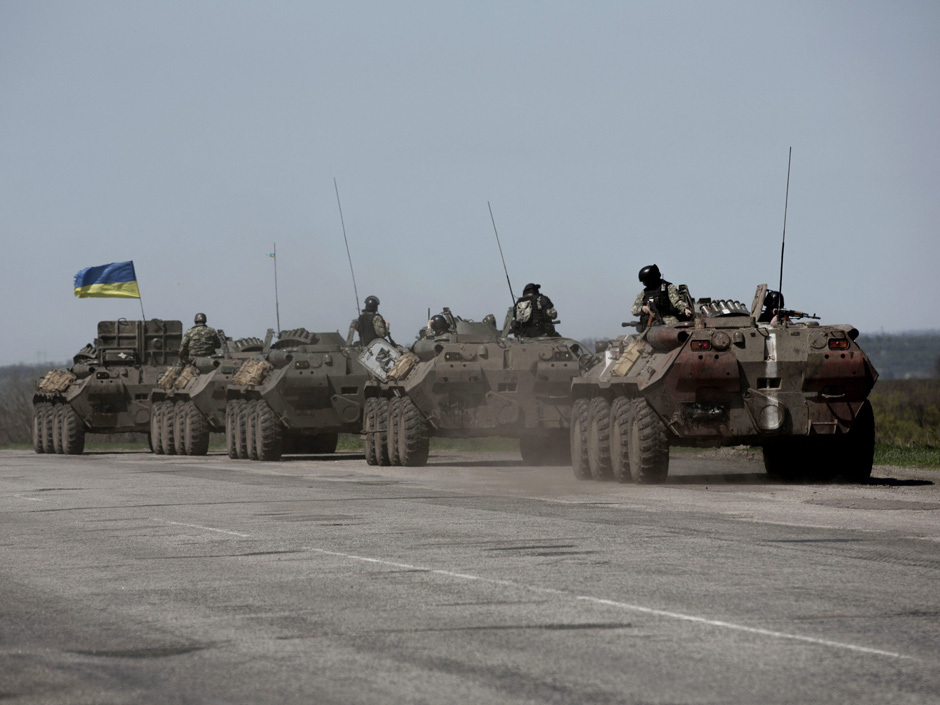Russia’s attempts at hegemony
In the South Caucasus, like the snow-capped summits that dominate the landscape, Russia’s politics define the region. In a new detailed report by James Nixey, a Russian expert at Chatham House, Russia wields huge influence in the region through political and economic means. According to Nixey, the mix of “soft power” and “hard power” employed by Moscow has resulted in a situation not seen since the days of the Soviet Union.
Russian hegemony is most clear in Armenia, a former Soviet republic that gained independence in 1991. Nixey argues, “Russian influence in Armenia is so great that lack of sovereignty should be Armenia’s number one concern.” The evidence that is presented greatly backs this claim. Through the Russian energy giant Gazprom and ownership of the Iran-Armenia gas pipeline, Russia effectively controls 80% of Armenia’s energy supply. They also own all but two of Armenia’s hydroelectric and nuclear power stations. The Russian banking sector is deeply involved in the Armenian one and during the economic crisis, Russia granted a $500 million loan to Yerevan.
This is not to say Moscow’s presence is felt only in the economy. There are two Russian military bases in Armenia – one in Yerevan and one in Gyumri, located in northwestern Armenia, close to its border with Georgia. In 2008, it was estimated that Russia keeps 42,080 active troops, 110 battle tanks and 16 combat aircraft in Armenia.
Georgia presents a similar yet different story, as it is one of subjugation. Since the 2008 South Ossetia War, Russia has, de facto, occupied 20% of Georgia’s territory in the regions of South Ossetia and Abkhazia, largely pro-Russian areas. Consolidating its control over these breakaway areas, Leonid Tibilov, a former KGB chief in South Ossetia and the Kremlin’s favoured candidate, was elected the regions’ president in April. Russia has also embarked on a socioeconomic program designed to ameliorate the economic conditions of these disputed lands through investment that would improve infrastructure and further agriculture and industry.
In Azerbaijan, the situation is more complicated. Azerbaijan does not fully depend on Russia for energy with the opening of the Baku-Tbilisi-Ceyhan pipeline almost a decade ago. Only one Russian oil company operates in the country, without much significance. Similarly, many joint infrastructural projects planned by both countries do not end up being implemented. According to Nixey, one caveat that contradicts Azerbaijan’s relative independence is that around two million Azeri migrant workers live in Russia, and generate about 10% of their home country’s GDP, worth $2.5 billion. Russia has consistently threatened to deport “illegal” workers and impose stricter visa regulations.
[captionpix align=”left” theme=”elegant” width=”320″ imgsrc=”http://armenianow.com/sites/default/files/img/imagecache/600×400/russian-military-base-armenia.jpg” captiontext=”Russian-Armenian military cooperation signifies the importance that Armenians place upon security against Turkey in the West.”]
One explanation for Russia following such an activist policy in the South Caucasus is the possibility of competition for influence in the region. From Moscow’s point of view, NATO and EU are rivals as both are building closer affiliations with the South Caucasus. While Armenia and Azerbaijan have both rejected membership in NATO, both are participants in the Individual Partnership Action Plans, a framework designed to heighten cooperation between NATO and partner countries. Azerbaijan, an ally of NATO member Turkey, has enjoyed positive relations with the alliance, as well as with Brussels. As for Armenia, it is seeking a closer economic liaison with Europe. Foreign Minister Eduard Nalbantyan, taking part in a summit between the EU and the Eastern Partnership, which includes the South Caucasus, expressed his desire for progress on a free trade zone that will boost Armenian-EU trade. Perhaps it is Georgia that gives Russia the biggest headache. NATO has consistently shown support towards Tbilisi, which is party to the alliance’s Intensified Dialogue, a key step towards full membership.
It is not difficult to understand Russia’s policy towards its southern neighbours. Nevertheless, it has to do with more than a long hostility towards NATO. The border that Russia shares with Azerbaijan and Georgia poses the challenge of terrorism in the form of resistance to Moscow’s rule in Chechnya and in Dagestan, to a lesser extent. Russian obsession with these rebellious areas is shown through its connection with the on-going violence in Syria.
Veteran journalist Robert Fisk has stated that one reason Russia fears the prominence of political Islam in Syria is due to the latter’s proximity to the Chechens and various Muslim minorities in Dagestan in its plausible influence. If Moscow draws a connection between Syria and its own domestic situation, there can be no question of control in the South Caucasus, for it is a prerequisite for order North of the border. One attempt at consolidating influence in the Caucasus has been proposal of a “Eurasian Union,” challenging European integration, which would include most Central Asian states, though the details have yet to be revealed.
[captionpix align=”left” theme=”elegant” width=”320″ imgsrc=”http://upload.wikimedia.org/wikipedia/en/thumb/f/fb/Chechnya9268.jpg/300px-Chechnya9268.jpg” captiontext=”An image from the Second Chechen War: security in the Caucasus is very important for Moscow.”]
Exploiting Conflict
In addition to Russia’s displays of soft power, Russia has also explored a more aggressive approach in the region, particularly in Georgia. When Russian forces seized South Ossetia and Abkhazia in the 2008 war, one outcome was crushing Georgia’s dream of joining NATO. Guidelines set out during consideration of enlargement into the former Soviet bloc in the 1990s proclaim, “states which have ethnic disputes or external territorial disputes, including irredentist claims, or internal jurisdictional disputes must settle those disputes by peaceful means.” It being difficult to envision a peaceful Russian-Georgian over these lands, President Saakashvili’s NATO aspirations are indefinitely put on hold, much to Moscow’s pleasure.
Another realm of such activity is the Nagorno-Karabakh conflict between Armenia and Azerbaijan, where Armenia has supported the efforts of the Armenian minority of southwest Azerbaijan towards self-determination. This resulted in a war between 1988 and 1994 as the USSR collapsed. Russia had been accused of supplying arms to both sides during the 1990s in order to keep both former Soviet Republics weak and under its clout. Nonetheless, Russia’s heavy economic and military partnership with Yerevan has exhibited its true bias in this dispute. With close relations between Azerbaijan and Turkey, support for Armenia can be seen as a means to excluding any form of external influence in the region, all the more significant given Turkey’s NATO membership and open desire for EU membership- a modern reincarnation of the historic Russo-Turk rivalry.
While Russia’s gravity in the South Caucasus will be likely sustained through its use of soft and hard power, one factor Russia must keep in mind is the region’s desire for self-determination. While provision is important for economic development, Russia will have to ally itself in a way that will preserve the sovereignties of these states- one mistake that proved troublesome for the former Soviet Union. So, perhaps the picture is not as positive for Russia as it seems to appear.
[captionpix align=”left” theme=”elegant” width=”320″ imgsrc=”http://3.bp.blogspot.com/-8Kbj3_r_tCI/TsnUs6NDKdI/AAAAAAAAASU/3ddlDJC75-g/s1600/nagorno-karabakh_occupation_map.jpg” captiontext=”The Armenian-Azeri conflict over Nagorno-Karabakh is a key party of Russian strategy in the region.”]




